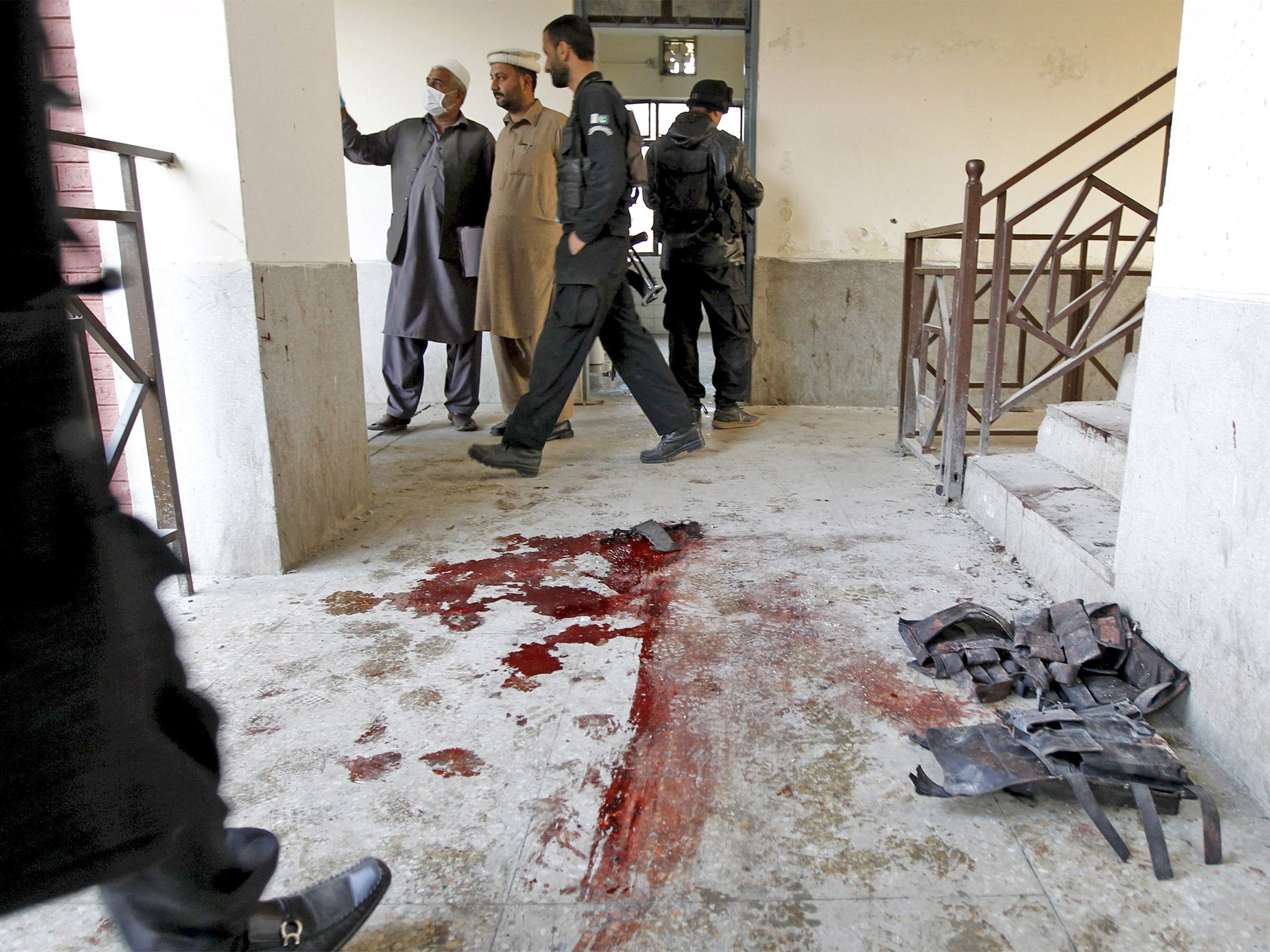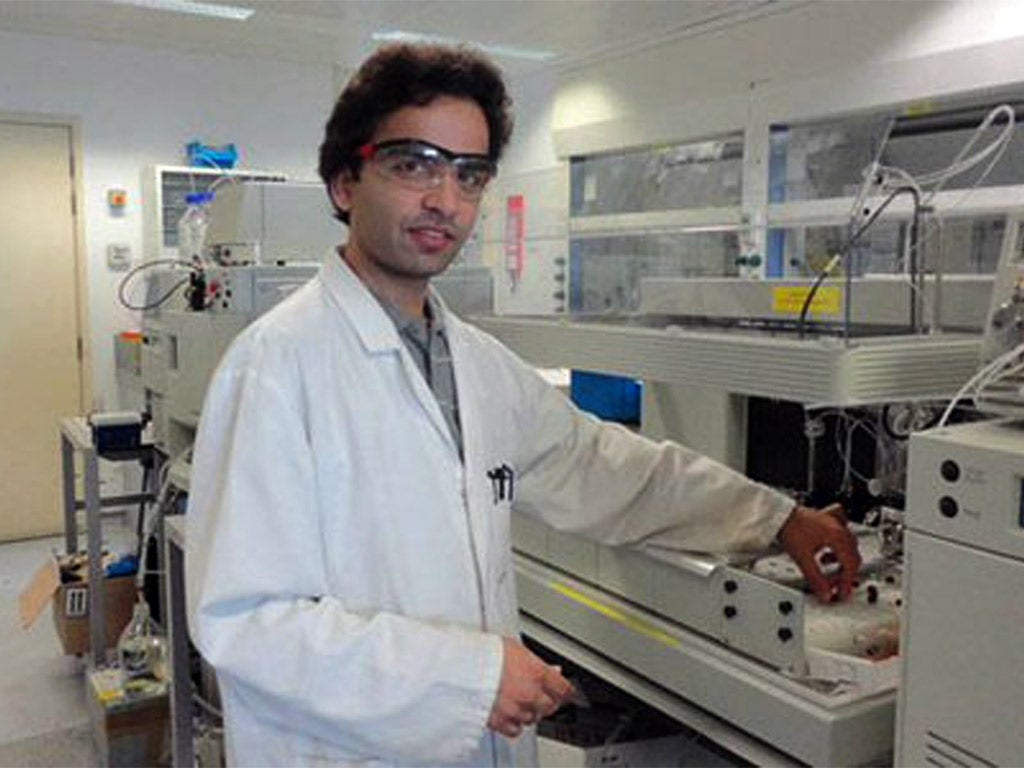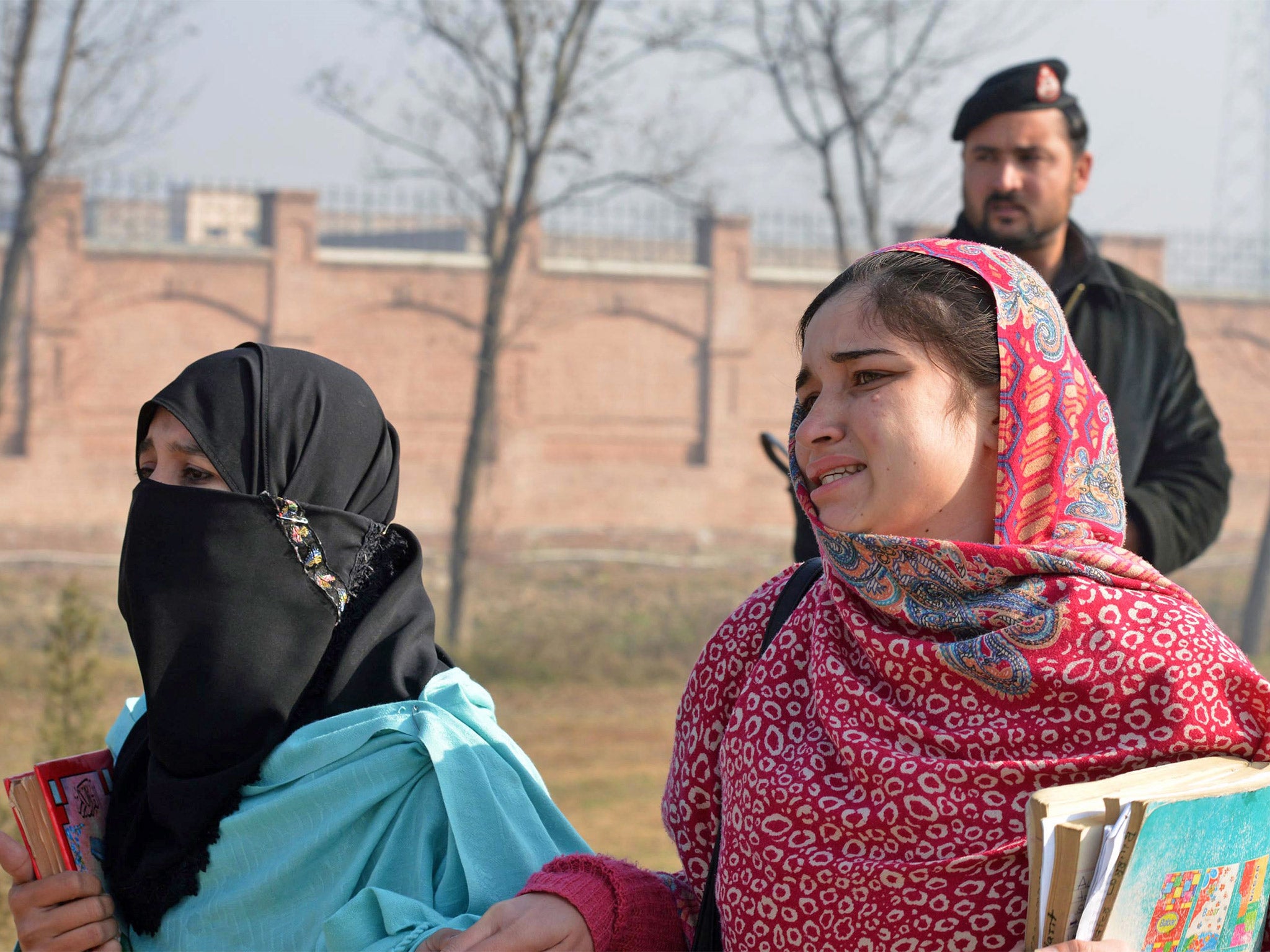Pakistan university assault: Bacha Khan security guard recounts shock of discovering body of 'professor who gave his life in fight against terrorists'
A year after the massacre in a Peshawar school, and in the wake of the subsequent crackdown, terrorists strike again, leaving 20 dead in a six-hour attack

The four men armed with assault rifles and grenades were concealed by a winter fog that had enveloped Bacha Khan University. Unseen and unheard, they prepared to begin a six-hour massacre, scaling the walls that surround the campus.
On Wednesday morning, a little more than a year after the Taliban killed more than 130 students at a school in Peshawar, 30 miles away, in Charsadda, the capital of Khyber Pakhtunkhwa in north-west Pakistan, another attack was launched as students slept. With the Prime Minister Nawaz Sharif’s assault against the Pakistani Taliban raging in tribal regions, the gunmen struck at a perceived “soft target”.
Opening fire on students, teachers and university workers, the four men, it was claimed, took their time. They met little resistance. Students were heard pleading for their lives before being shot in the head. At least 20 were killed but the death toll is expected to increase significantly.
Among the dead was the chemistry lecturer, Professor Syed Hamid Hussain. He had been determined to save the lives of his students and colleagues. Zahoor Ahmed, a geology student said Mr Hussain had warned him not to leave the building after the first shots were fired. “He was holding a pistol in his hand,” he was quoted by AFP news agency as saying. “Then I saw a bullet hit him. I saw two militants were firing. I ran inside and then managed to flee by jumping over the back wall.”
In Charsadda, Shiraz Ali, a security guard at Bacha Khan, reflected on how he survived the massacre. The 35-year-old told The Independent: “I was shocked to hear voices loudly shouting ‘terrorists’. And then there was a first burst of gunfire which I survived somehow. I fired in response in the same direction. I saw three people and fired at them and followed them. But they disappeared in the fog. I saw a security guard with a bullet in the arm asking for help. He was injured. A few yards ahead again I heard firing. I took position on the ground and moved ahead to find a body lying in blood with a pistol in his hand. I was shocked to discover the professor who gave his life in fight against terrorists.”

The university had been due to host a poetry recital to commemorate the anniversary of Khan Abdul Ghaffar Khan, a Pashtun independence activist after whom the institution is named. The Vice Chancellor Fazal Rahim told reporters that the university teaches over 3,000 students and was hosting an additional 600 visitors for the poetry recital.
The army said it had cleared the campus of attackers and killed the gunmen, six hours after the assault began. A security official said the death toll could rise to as high as 40 with many critically wounded in hospital. Authorities vowed there would be a retaliation against those who planned the assault.
Yet there remained conflicting reports about which group had been behind the attack. Umar Mansoor, a senior Pakistani Taliban commander involved in the December 2014 attack in Peshawar, claimed responsibility for the Charsadda assault and said it involved four of his men. He told Reuters by telephone the university was targeted because it was a government institution that supported the army.
With a chest-length beard, and holding an finger aloft, he was filmed claiming credit for the Peshawar massacre last year. “If our women and children die as martyrs, your children will not escape,” he said. “We will fight against you in such a style that you attack us and we will take revenge on innocents.” However, later in the day, an official Taliban spokesman issued a written statement disassociating the militants from the attack, calling it “unIslamic”.
The violence illustrated that terrorists retain the ability to launch attacks, despite a country-wide anti-terrorism crackdown and a military campaign against their strongholds along the lawless border with Afghanistan. “They came from behind and there was a big commotion,” said one student from his hospital bed in Charsadda’s District Hospital. “We were told by teachers to leave immediately. Some people hid in bathrooms.”

Ahmed Zed, a 23-year-old business administration student, was about to leave his room when he heard the shooting. “I suddenly retreated back to my room,” he told The Independent. “I locked myself in my room and in the cupboard. I was numb with fear. I heard the students pleading for life for hours.” Yasir Zafar, a sociology lecturer, added: “It was at 8.30am when I heard heavy firing. When I got out of the office I found our security guard engaging the terrorist. I was told by the security guard to leave the university immediately. On my way back I saw my final-year student dead. The shooting became intense and when I looked back I saw the guard shot dead. I’m lucky to have escaped.”
Shabir Khan, a lecturer in the English department, said he was about to leave his university housing for the department when shooting began. “Most of the students and staff were in classes when the firing began,” he said. Several schools had closed early at the weekend around Peshawar after rumours circulated of a possible attack.

The Peshawar school attack was seen as having hardened Pakistan’s resolve to fight militants along its lawless border with Afghanistan. The government lifted a six-year moratorium on the death penalty soon afterwards. “It is now painfully clear that putting to death more than 300 people … in the name of fighting ‘terrorism’ has done nothing to prevent such tragedies,” said Champa Patel, South Asia Director of Amnesty International. “In its response to this latest tragedy, the Pakistani authorities must do everything in their power to protect civilians, while respecting human rights and humanitarian law. They should avoid regressive measures such as their resumption of executions following the 2014 Peshawar school attack.”
But Mr Sharif said: “We are determined in our commitment to wipe out the menace of terrorism from our homeland.”
Join our commenting forum
Join thought-provoking conversations, follow other Independent readers and see their replies
Comments
Bookmark popover
Removed from bookmarks